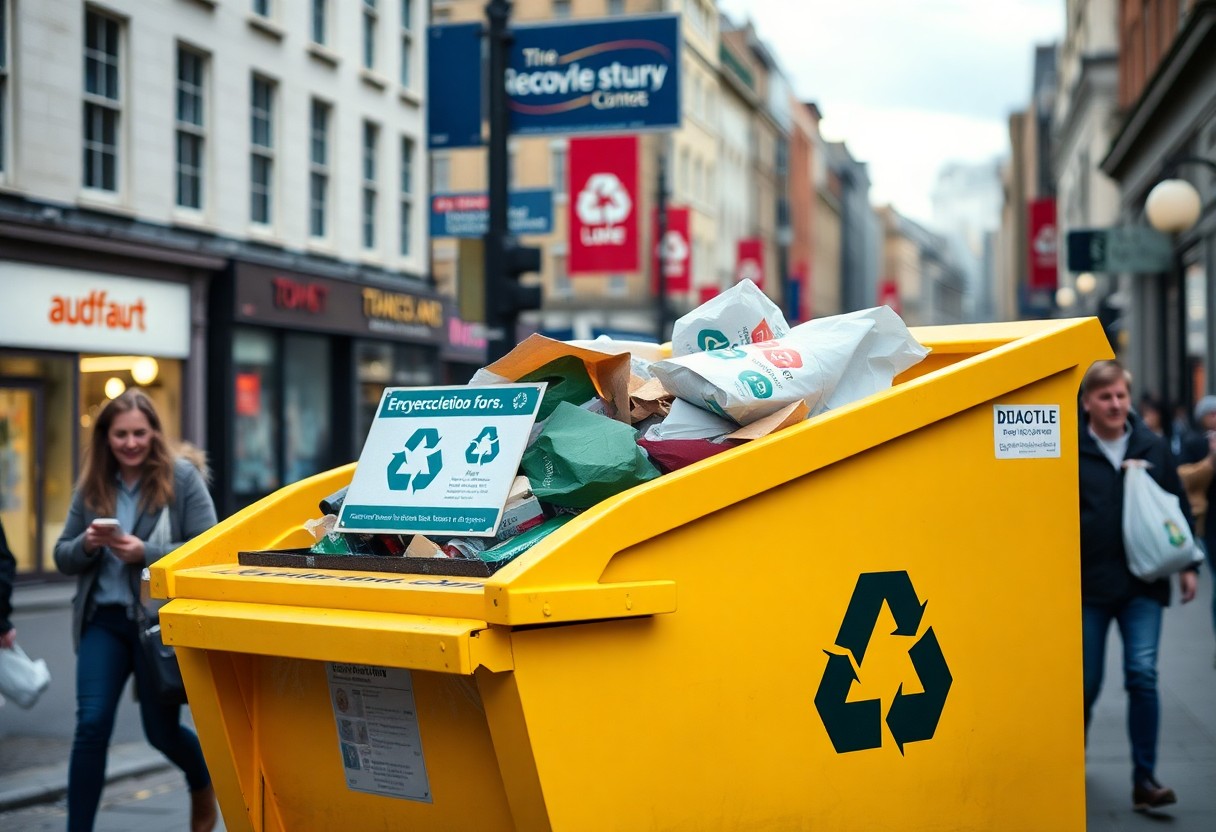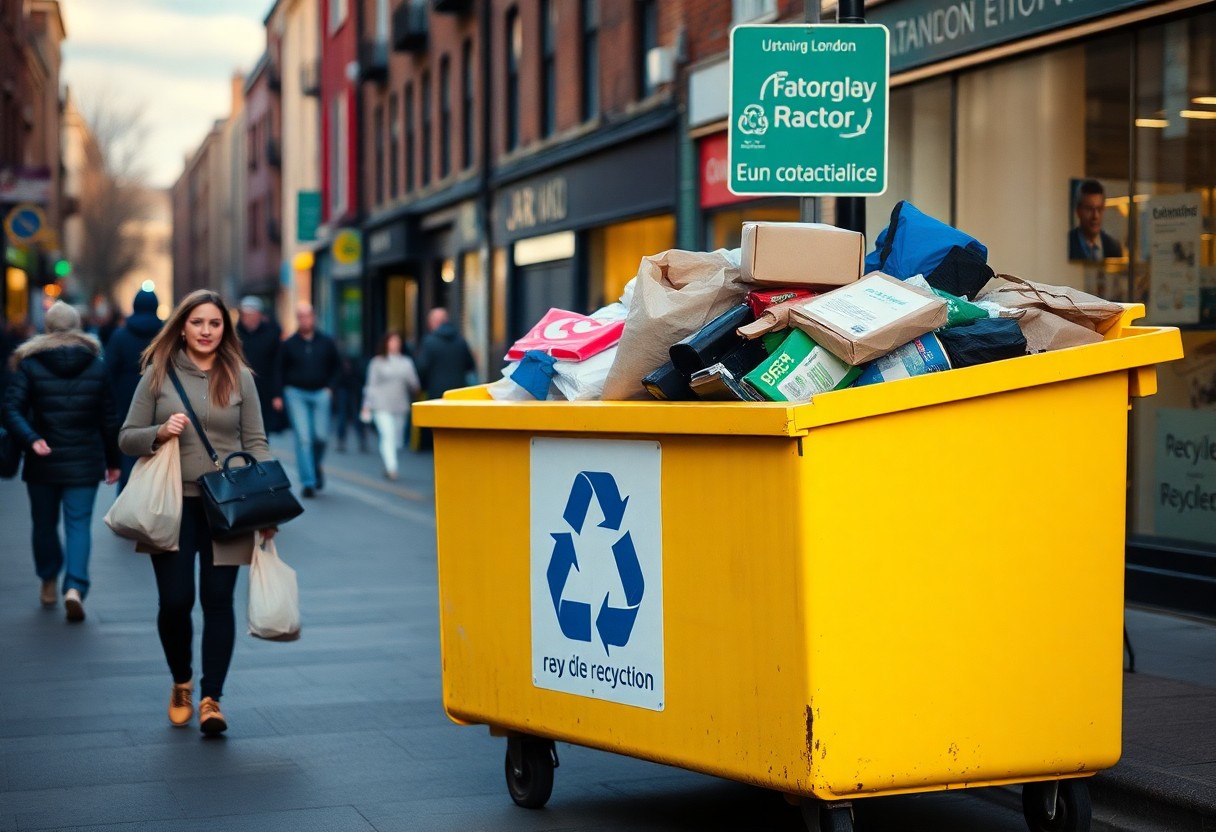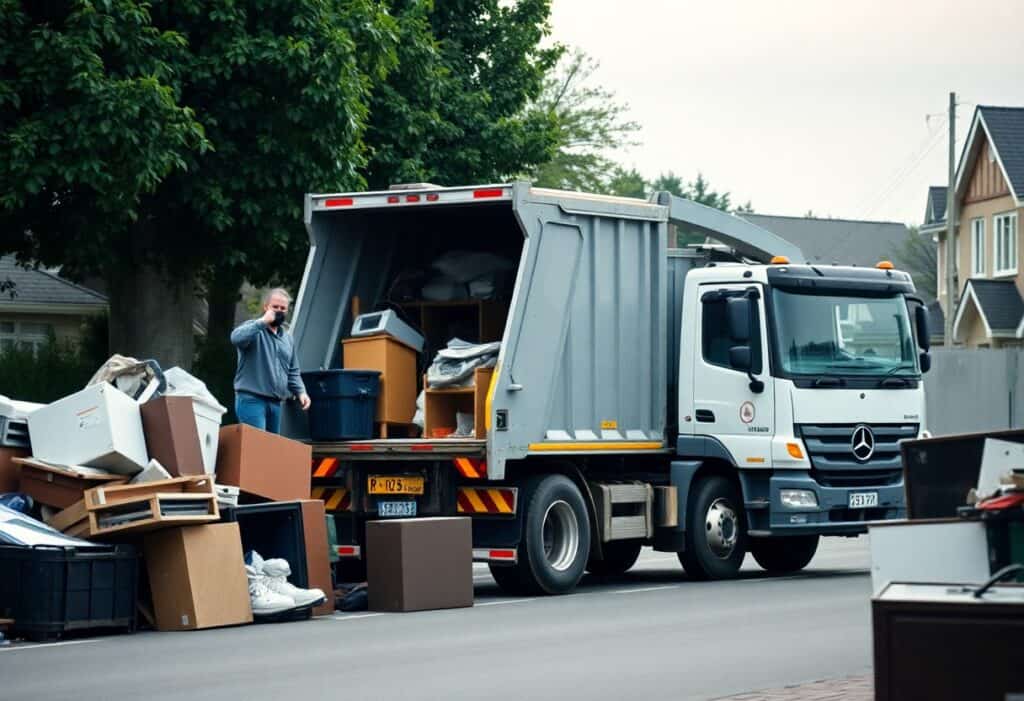Over time, reducing waste has become a significant responsibility for everyone, especially when hiring a skip in London. To ensure you manage your waste effectively, it’s crucial to plan ahead, sort your materials properly, and choose the right skip size for your project. By following these simple strategies, you can minimise waste and even save money. For more detailed insights, check out these Tips For Maximizing The Use Of Your Skip And Reducing … waste disposal costs.

Understanding Waste Reduction
Aiming for waste reduction is imperative when hiring a skip in London. Not only does it contribute to a healthier environment, but it also can lead to cost savings and efficient disposal practices. By being mindful of your waste, you can significantly minimise the impact on landfill sites and promote recycling and reuse of materials.
Tips for Minimizing Waste
Reduction of waste during your skip hire can be achieved by following a few key tips:
- Plan your project to avoid unnecessary waste.
- Sort your materials into recycling and landfill categories.
- Donate items that are still usable.
- Opt for materials that are easily recyclable.
After implementing these strategies, you’ll find that your overall waste output is significantly reduced.
Factors Affecting Waste Management
On the topic of waste management, several factors play a role in how effectively you can reduce waste during your skip hire. The type of materials you generate and the local recycling facilities available are among these factors. Additionally, regulations surrounding waste disposal in London can influence your decisions and strategies.
- The type of waste you generate.
- The availability of local recycling services.
- The cost of disposal fees.
Knowing these factors will empower you to make informed decisions and optimise your waste management strategy.
This understanding of waste management factors will help you navigate the complexities of disposal. By being aware of your local recycling options and the specific regulations in place, you can streamline your efforts to minimise waste. Furthermore, recognising the impact of your waste type on overall management allows for better planning. Ultimately, knowing how these elements come together aids in achieving a more efficient waste reduction process.

Choosing the Right Skip
Any decision regarding skip hire can impact your waste management significantly. Choosing the right skip not only helps reduce your waste but also ensures you comply with local regulations. It’s important to understand your needs and what type of skip will accommodate your project effectively.
Tips for Selecting a Skip Size
Now, selecting the appropriate skip size is vital for efficiency. Here are some tips to help you:
- Assess the amount of waste you will generate.
- Consider the type of items you’ll be disposing of.
- Prioritise convenience and accessibility for loading.
- Consult with your skip hire company for expert recommendations.
Assume that choosing a slightly larger skip is often better than underestimating your needs.
Factors to Consider When Hiring
You should evaluate several factors before hiring a skip to ensure it meets your requirements. Key elements include:
- Your budget for skip hire.
- The size and type of skip needed.
- Local regulations and restrictions.
- Skip hire duration and availability.
Knowing these factors will help streamline your skip hire experience.
Skip hire offers a practical solution to manage your waste effectively, but you must be meticulous about your choices. For instance, selecting a reputable company ensures safety and reliability. Understanding your local area’s regulations is vital, as some councils have restrictions on skip placement. Don’t forget about additional costs associated with permits or overfilling charges. If your project involves hazardous materials, ensure your chosen skip can handle that safely. Knowing these considerations enables you to make an informed decision.
- Ensure you hire from a licensed provider.
- Assess the proximity to your location for convenience.
- Verify the insurance coverage of the skip hire company.
- Check for any hidden costs or charges.
Knowing the ins and outs of skip hire can lead to a smoother process and better waste management outcomes.
Preparing for Skip Delivery
If you’re planning to hire a skip, proper preparation is crucial to ensure a smooth delivery process. Make sure to read about tips and solutions for reducing household waste for extra insights. Confirm your skip is on an appropriate surface and clear the area to allow easy access for the delivery vehicle. This will help avoid delays and ensure a seamless experience.
Tips for Efficient Loading
If you want to maximise the space in your skip, consider these loading tips:
- Start with large items first
- Break down bulky objects
- Fill gaps with smaller debris
- Place heavier items at the bottom
Perceiving the benefits of efficient loading can help you save money and reduce the number of trips required.
Factors That Influence Delivery
Even when hiring a skip, various factors can impact the delivery schedule:
- Your location’s accessibility
- Traffic conditions on the delivery day
- Size and type of skip you have ordered
- Time of year and peak periods for skip rental
Perceiving these factors will assist you in planning ahead and ensuring a timely delivery.
The delivery of your skip can be influenced by several important considerations that you need to keep in mind. Location plays a significant role; if the area is difficult to access, it may cause delays in delivery. Moreover, traffic conditions, especially during rush hours, could affect the timing. The size and type of skip you select can also impact logistics, as larger skips may require more space for manoeuvring. Seasonal demand should not be overlooked, since peaks can result in longer wait times. Perceiving these factors well can help you navigate the process more effectively.
Responsible Waste Disposal
Once again, it’s important to acknowledge that responsible waste disposal is key to minimising environmental impact when hiring a skip in London. Ensure that your waste is disposed of correctly by following proper procedures. For more tips, refer to these 5 Simple Ways That You Can Cut Down Waste.
Tips for Recycling and Reusing
Even small steps can lead to significant reductions in waste. Here are some practical tips for recycling and reusing:
- Separate recyclables from general waste
- Donate items in good condition
- Repurpose old materials for new uses
Thou should consider these strategies to extend the lifespan of your belongings.
Factors to Ensure Proper Disposal
Little aspects like understanding local regulations can affect how you dispose of your waste. To ensure proper disposal, keep these factors in mind:
- Research local disposal guidelines
- Choose a reliable skip hire company
- Verify recycling facilities used by the service
After assessing these factors, you will be better equipped to manage your waste responsibly.
The importance of understanding factors for proper disposal cannot be overstated. You need to thoroughly research local guidelines to ensure compliance and avoid potential fines. Choose a skip hire service that prioritises environmental responsibility and ask about the recycling facilities they partner with. Verify how hazardous materials are handled, as improper disposal can lead to severe penalties and environmental damage. After following these steps, you can maintain peace of mind knowing your waste is being managed ethically.
Tips for Ongoing Waste Reduction
Unlike many believe, reducing your waste goes beyond a single project. By integrating sustainable habits into your daily life, you can significantly lower your overall impact. Here are a few tips:
- Opt for reusable items whenever possible.
- Sort your waste into recyclables, compost, and general waste.
- Choose eco-friendly products that have minimal packaging.
Thou will find that each small change contributes to a larger positive outcome.
Strategies for Future Projects
Assuming you plan on undertaking future projects, consider sustainable strategies from the outset. Evaluating your needs and resources will allow for better planning and less waste generation. Aim for a holistic approach that incorporates:
- efficient design.
- local materials to reduce transportation waste.
- sustainable practices throughout the project.
Factors to Promote Sustainable Practices
Sustainable practices can significantly reduce your environmental impact. Focus on utilising resources wisely and encouraging others to do the same. To promote sustainable behaviours, consider these factors:
- Implementing education on waste reduction.
- Encouraging community involvement.
- Offering incentives for sustainable choices.
The awareness of these practices can lead to a collective effort, transforming how communities manage waste.
Plus, fostering a culture of sustainability within your community can dramatically change product consumption. Include strategies that promote engagement while ensuring every voice is heard. Consider:
- collaborative initiatives for reducing waste.
- workshops to teach waste management skills.
- partnerships with local businesses to promote sustainability.
The combined effect of these actions can steer society towards a more environmentally conscious future.
Final Words
Upon reflecting on your waste management strategy when hiring a skip in London, you can significantly minimise your environmental impact by planning carefully. Ensure you sort your waste effectively, recycling as much as possible and avoiding contamination. Consider opting for a skip that matches your needs precisely to prevent overfilling, and look into companies that promote eco-friendly disposal practices. By taking these steps, you can contribute positively to waste reduction while efficiently managing your own project.
FAQ
Q: What types of waste can I put in a skip to ensure minimal environmental impact?
A: When hiring a skip, it’s important to consider the types of waste you are disposing of. You can reduce your environmental impact by sorting your waste into recyclable materials such as cardboard, paper, plastics, metal, and glass. Additionally, ensure that hazardous items like batteries, chemicals, or electrical appliances are disposed of through appropriate channels, as these can contaminate other waste streams.
Q: How can I accurately estimate the size of skip I need to avoid unnecessary waste?
A: To avoid hiring a skip that is too large, assess the volume of your waste beforehand. Measure your waste materials or use an online size calculator provided by skip hire companies. By choosing the appropriate size, you can minimise the amount of space in the skip that goes unused, which helps to reduce overall waste and costs.
Q: What practices can I adopt to ensure that my waste is sorted effectively when using a skip?
A: Establish a sorting station at your location where different types of waste can be collected separately. Designate bins for recyclable materials, non-recyclable items, and hazardous waste. By doing this, you enhance the recycling process and reduce the amount of waste that ends up in landfill.
Q: Is there a way to recycle items before hiring a skip?
A: Yes, before hiring a skip, consider whether any items can be reused or donated. Local charities, furniture banks, or recycling centres often accept second-hand goods. Items that are still in good condition, such as clothing and furniture, can be donated, thus significantly reducing the volume of waste that requires disposal in a skip.
Q: How can I find a skip hire company that prioritises environmental practices?
A: Research skip hire companies that are committed to sustainability. Look for companies that are licensed with relevant environmental authorities and those that practice proper waste management techniques. You can often find information on their websites regarding their recycling rates and environmental policies. User reviews can also provide insights into their commitment to reducing waste.



